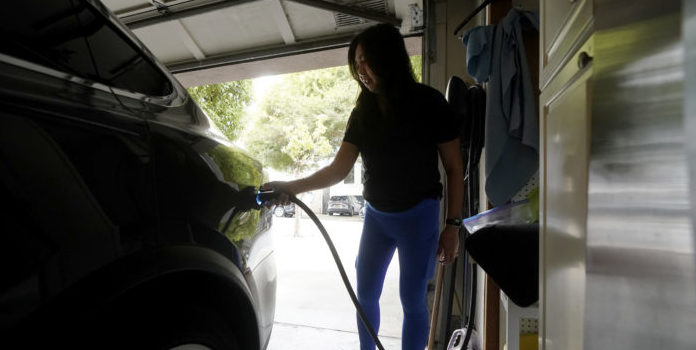(Chris Parker, Headline USA) Just days after passing a bill outlawing the sale of gas vehicles by 2035, California is asking residents to stop charging their electric vehicles.
The California Independent System Operator is urging residents to adopt the American Public Power Association’s top three conservation actions. That includes setting thermostats to 78 degrees, turning off unnecessary lights, and avoid charging electric vehicles, reported The Daily Wire.
The request was sent amid a series of rolling blackouts expected across California and several other western states. It will prove challenging for residents as the west faces a heat wave that’s expected to send temperatures soaring to 115 degrees.
However, the extreme heat is stressing the Democrat-controlled state’s energy grid, leaving them with little choice than to cut the power when residents need it most.
“Starting tomorrow through Tuesday, California and the West are expecting extreme heat that is likely to strain the grid with increased energy demands, especially over the holiday weekend,” said California’s grid operator.
The request comes just ahead of Labor Day weekend, a time when traveling within California ramps up as residents and visitors explore the state’s outdoor attractions during summer’s final weekend.
It follows a similar pattern seen last year, when California also urged residents to scale back EV charging ahead of Labor Day weekend blackouts.
“Today, most people charge their electric cars when they come home in the evening — when electricity demand is typically at its peak,” according to researchers at Cornell University’s College of Engineering.
“If left unmanaged, the power demanded from many electric vehicles charging simultaneously in the evening will amplify existing peak loads, potentially outstripping the grid’s current capacity to meet demand.”
California is also requiring residents to conserve their water usage and recently blamed celebrities for exceeding their allotment. The state has responded by reducing the amount of water that can be used in a given time frame for repeat offenders.

